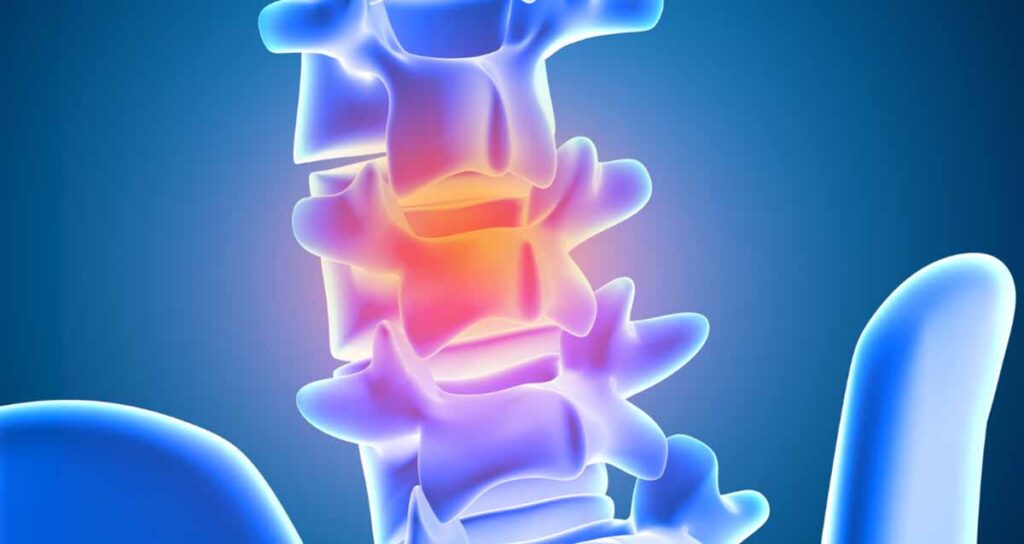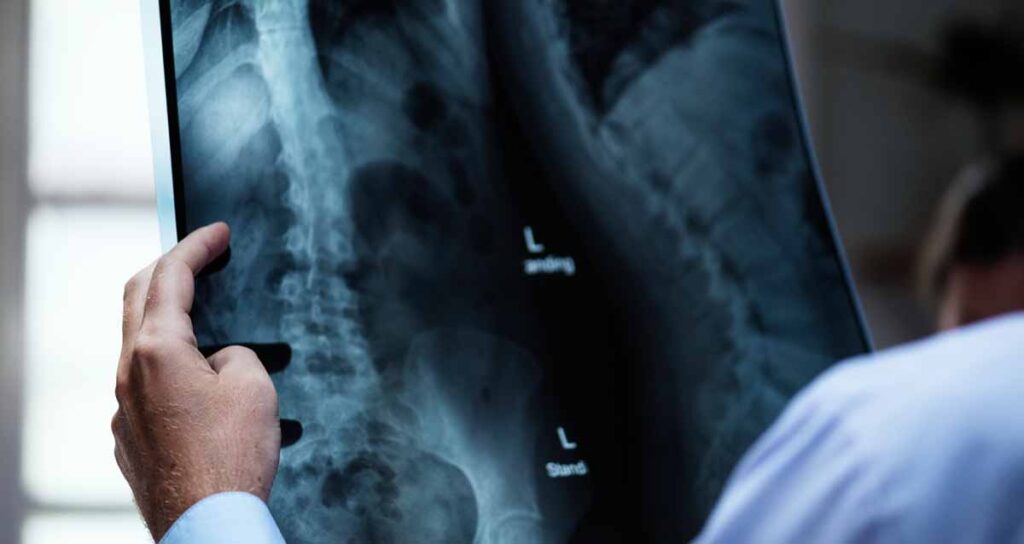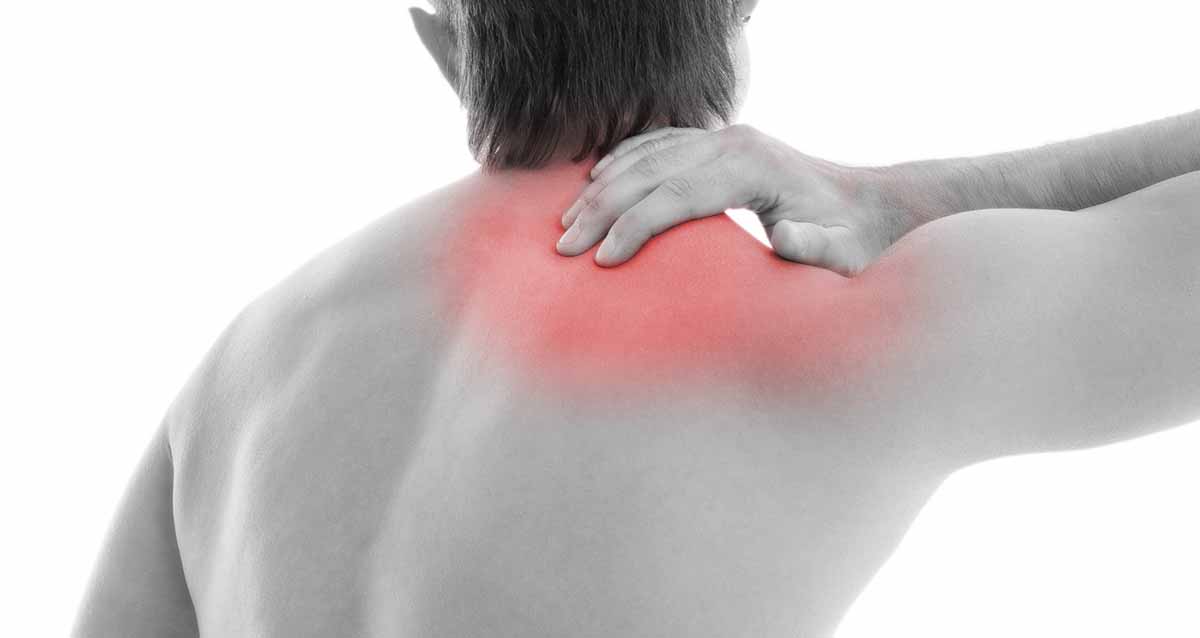Are you experiencing pain in your upper back every time you breathe in? This can signify a more severe condition that needs immediate attention. To help understand and manage this condition, we contacted Dr. Jasdeep Sidana to help understand the causes, symptoms, diagnosis, and treatment of upper back pain when breathing.
Understanding Upper Back Pain when Breathing
Upper back pain when breathing can be caused by various factors such as muscle strain, inflammation, injury, or even underlying medical conditions. According to Dr. Sidana, common causes include poor posture, repetitive motions, stress, and spinal issues such as herniated discs.
It is essential to identify the symptoms of upper back pain when breathing, which may include sharp pain, stiffness, and difficulty taking deep breaths. These symptoms can significantly affect your daily life, making it difficult to perform simple tasks such as cooking, driving, and sleeping.
What Might Cause Upper Back Pain When Breathing?
1. Pleurisy
Dr. Jasdeep Sidana explains pleurisy as an inflammation of the lining surrounding the lungs, called the pleura. This condition can be attributed to various factors, such as an infection or medication reaction. It can also occur due to conditions like lupus and rheumatoid arthritis and during treatments like chemotherapy.
Common symptoms associated with pleurisy include the following:
- Chest pain while breathing and coughing
- Shortness of breath
- Shallow breathing
- Fatigue or malaise
- Fever and a dry cough
Depending upon the cause of pleurisy, Dr. Sidana prescribes a suitable treatment plan that may include antibiotics or antifungal drugs, pain relievers, or steroids, among other medications; in some cases, surgical intervention may be recommended to manage severe cases of pleurisy.
Causes of Pleuritic Back Pain

The pain associated with pleurisy is often sharp and worsens when taking deep breaths, coughing, or sneezing. While the primary symptom is chest pain, pleuritic back pain can also be present.
Some of the common causes of pleuritic back pain include:
- Infections: Pleurisy can be caused by bacterial or viral infections such as pneumonia, bronchitis, or tuberculosis.
- Inflammatory conditions: Conditions such as lupus, rheumatoid arthritis, and inflammatory bowel disease can lead to pleuritic back pain.
- Pulmonary embolism: A blood clot in the lungs can lead to inflammation and pain in the pleura.
- Trauma: Chest injuries, such as a fractured rib or blunt trauma, can cause pleuritic back pain.
- Cancer: Lung cancer or metastasis to the chest can cause pleurisy and pleuritic back pain.
- Autoimmune disorders: Certain autoimmune disorders, such as Sjogren’s syndrome, sarcoidosis, and systemic lupus erythematosus (SLE), can lead to pleurisy.
- Environmental factors: Exposure to asbestos, pollutants, or toxins can cause pleuritic back pain.
It is essential to seek medical attention if you are experiencing pleuritic back pain, as it can be a sign of a more serious underlying condition. Treating pleurisy typically involves addressing the underlying cause, such as antibiotics for bacterial infections or anti-inflammatory medications for autoimmune disorders. In addition, pain relief medications may also be prescribed to manage the discomfort associated with pleurisy.
2. Muscle Strain
Muscle strain is another common cause of upper back pain when breathing and can occur due to overuse or an injury. Dr. Sidana discusses the various factors that may contribute to muscle strain, such as:
- Poor posture
- Repetitive motions
- Lifting heavy objects
- Stress
Additionally, muscle strain can lead to pain in the upper back while breathing, as the muscles involved in respiration can be affected. Dr. Sidana recommends a multi-pronged approach to managing muscle strain, including rest and physical therapy and anti-inflammatory medications or pain relievers if necessary.
3. Spinal Issues
Herniated discs or other spinal issues can also lead to upper back pain when breathing. Dr. Sidana explains that a herniated disc can cause pain in the upper back when it affects the nerves along the spine. Other issues, such as spinal stenosis or osteoarthritis, may also result in this type of discomfort. Treatment for these conditions typically involves physical therapy, medications, and possibly surgery.
4. Fractured Vertebra

Dr.Jasdeep Sidana explains that a fractured vertebra can create more stress in the body, leading to upper back pain when breathing deeply. The fractured vertebrae press on the surrounding nerves and muscles, causing them to tense up and become weak.
This can cause strain on the back muscles and lead to sharp pain or discomfort while breathing. The severity of the pain depends upon how severe the fracture is. Those who experience such a situation should visit their doctor immediately, as further complications may arise if left untreated.
5. Anxiety Disorders
Anxiety disorders can lead to many physical symptoms, including profound effects on the respiratory system. For example, many anxiety sufferers will experience tightness in their chest, making breathing uncomfortable and erratic. In addition, this tightness may sometimes feel like burning or pressure around the upper back area, causing further discomfort.
Additionally, increased heart rate due to prolonged stress levels can cause muscles in the back area to tense up and contract involuntarily. This constriction can be painful and can exacerbate upper back pain when breathing during episodes of anxiety. These unpleasant side effects are not exclusive to any particular type of anxiety disorder and can occur with various mental afflictions.
Therefore, reducing stress through therapeutic methods and regular exercise is essential to restoring one’s physical health while also treating their mental well-being.
5. Asthma and COPD
Dr. Jasdeep Sidana states that asthma and COPD sufferers commonly experience pain in the upper back when breathing. This is typically due to the inflammation of the bronchial tubes, which can result in pressure being applied to the spine during inhalation. Similarly, a lack of oxygen combined with limited chest expansion can cause muscles within the ribcage to tighten, resulting in aches and pain as they struggle to contract fully.
Furthermore, if lung tissue becomes damaged due to an illness or infection, there may be pressure on adjacent structures such as ligaments, intercostal muscles, and various nerves from surrounding areas. For many individuals, this is especially noticeable when releasing air quickly and forcefully or coughing intensely.
Diagnosing Upper Back Pain when Breathing

When diagnosing upper back pain when breathing, Dr. Sidana recommends consulting a medical professional who can perform a comprehensive evaluation and suggest appropriate diagnostic tests such as X-rays, MRI, or CT scans. These tests can help identify the underlying cause of your pain, and your physician can create a personalized treatment plan accordingly.
Relieving Upper Back Pain when Breathing
There are several ways to relieve upper back pain when breathing, depending on the severity and cause of your condition. Dr. Sidana recommends practicing good posture, stretching exercises, and heat or ice therapy as initial home remedies. In addition, over-the-counter pain medications, such as ibuprofen or acetaminophen, can relieve mild to moderate pain.
Dr. Sidana suggests consulting a pain management specialist who can offer advanced pain relief treatments such as injections or nerve blocks for more severe cases. In addition, alternative treatments such as chiropractic care, acupuncture, or massage therapy can relieve upper back pain when breathing.
Preventing Upper Back Pain when Breathing
Prevention is always better than cure. Dr. Sidana advises making specific lifestyle changes to prevent the onset or recurrence of upper back pain when breathing. These changes include maintaining good posture, regular exercise, avoiding smoking, and ergonomic adjustments at work and home.
Conclusion
Upper back pain when breathing can be debilitating, affecting your daily life in many ways. However, with the proper diagnosis, treatment, and preventive measures, you can effectively manage and even overcome this condition. If you are experiencing upper back pain when breathing, consult a medical professional or a pain management specialist like Dr. Jasdeep Sidana about developing a personalized treatment plan. Remember, with the proper care and support, you can easily breathe and lead a pain-free life.


